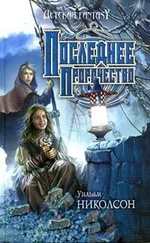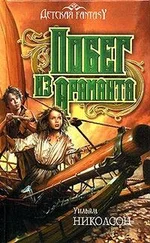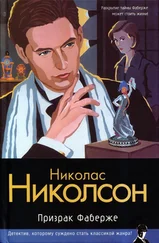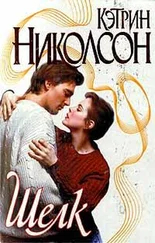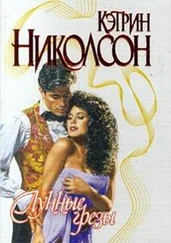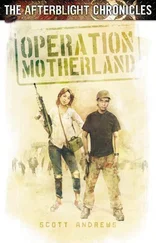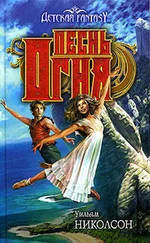‘Buck up,’ says Johnny Parrish.
Larry hurries into the library, which is already noisy with the chatter of officers. Brigadier Wills arrives and the meeting begins. Most of it concerns the lessons to be learned from yesterday’s exercise. Larry, perched on a window shelf at the back, allows his mind to drift.
He thinks of the library in his father’s house in Kensington; far smaller than this grand open-roofed hall, but sharing the magic of all libraries, which is that the books on their shelves open onto infinite space. He came every evening in the school holidays to join his father in prayers in the library, which gave it something of the mystery of a church. He has almost no memory of his mother, who is in heaven, and therefore inescapably confused with the Mother of God. It came as a shock to him to discover when he was sent away to school that the Blessed Virgin cared for other children as well.
Our Lady, hear my prayer. St Lawrence, hear my prayer .
St Lawrence is his own saint, the third-century martyr who was roasted to death on a grid-iron, saying apocryphally, ‘Turn me over, I’m cooked on this side.’ There was fun with that at school.
Larry prays often, from long habit, inattentively. It has become the manner in which he expresses his desires. This despite the fact that at Downside the subtle monks taught him a wiser notion of prayer. Its object is not to seek God’s intervention in our favour, but to align ourselves with God’s will for us. Perhaps even – Larry has been especially drawn to this – to relieve us of self-will altogether. Dom Ambrose, the same monk who taught him to love George Eliot, was a devoted follower of Jean-Pierre de Caussade. The eighteenth-century Jesuit preached abandonment to the will of God within the sacrament of the present moment. Père de Caussade’s prayer was ‘Lord have pity on me. With you all things are possible.’
Lord have pity on me, prays Larry. Find me a girl like Kitty.
3
Ed Avenell shows up at River Farm early on Sunday morning, and by the time Larry gets up he finds Mary Funnell is eating out of his hands.
‘Mary, sweet Mary,’ he’s saying to her, ‘do you dance, Mary? Of course you do. I can always tell a girl who has dancing feet.’
He spins her round the kitchen table, bringing her back pink-faced and flustered to the draining board where she’s been washing dishes.
‘You’d dance the night away if you could.’
‘What a terrible man your friend is,’ Mary Funnell says to Larry. ‘The things he says to me.’
‘I’m buying your love, Mary,’ says Ed. ‘I’ll say almost anything for a hard-boiled egg.’
Larry marvels to see Ed’s charm operating at full throttle. The wonder of it is he tells nothing but the unvarnished truth, and yet he so manages it that the lonely and overworked farmer’s wife feels he understands her and respects her.
The results are to be seen in the basket she is assembling for their lunch. Ed has decided it is to be a picnic. He now heads off to recce its location.
‘You sort out the crockery, Larry. And don’t forget glasses.’
By the time Kitty and Louisa come bicycling into the farmyard in their summer frocks, the war seems a thousand miles away. Ed reappears, and treats Kitty with an offhand friendliness, as if they have known each other for years.
‘Larry, you take the basket. I’ll take the box.’
‘What am I to carry?’ says Kitty.
‘You can carry the rug if you like.’
Ed’s plan is that they picnic in the copse above the nearby village of Glynde, on the flank of Mount Caburn. Kitty sits in the front of his jeep, with Larry and Louisa behind.
‘You get your own jeep?’ says Kitty.
‘Not exactly,’ says Ed. ‘But in our outfit the idea is we use our initiative.’
‘He’s stolen it,’ says Larry.
‘What exactly is your outfit?’ says Louisa.
‘40 Royal Marine Commando,’ says Ed.
‘I’ve heard that name.’ Kitty frowns, trying to recall where.
‘Kitty drives the Brig,’ says Louisa. ‘She hears everything.’
‘Is your CO called Phillips?’
‘Joe Phillips, yes. How do you know that?’
‘I must have had him in the back of the car. Does that mean your lot are part of the big show that’s coming up?’
Ed laughs and glances back at Larry.
‘What price security, eh?’
‘Oh, save your breath,’ says Louisa. ‘Even the dumb Canucks know it’s coming.’
Ed drives the jeep off the road up rising land into a wood, and stops on the far side. Here a small clearing in the trees opens out to the east, giving a wide view of the Sussex plain. The fields, not yet harvested, lie brown and gold in the midday sun. Here and there the faded red of tiled roofs reveal a village.
Larry spreads the rug over the ground, and Kitty and Louisa unpack the picnic, exclaiming at the discovery of each new delight.
‘Tomatoes! Hard-boiled eggs! Oh my God, I’m in heaven! Is this home-made bread? Look, Louisa! Real butter!’
Ed opens the flagon of cider and pours them all a glass. He proposes a toast.
‘To luck,’ he says.
Larry keeps looking at Kitty, and each time he looks he sees that her eyes are on Ed. He makes an effort to take control of his own foolishness. This entire picnic has been got up, after all, to give Ed a clear run at Kitty. As Ed’s friend his duty is to pay attention to Louisa.
‘Do you believe in luck?’ he says to her.
‘Not really,’ she says. ‘I’m not sure what I believe in. Does everyone have to believe in something?’
‘You don’t have to,’ says Larry, ‘but I think you do, whether you realise it or not. Even Ed.’
Ed has taken out a scary-looking long-bladed knife and starts cutting slices off the loaf.
‘I believe in luck,’ he says. ‘And I believe in impulse. And I believe in glory.’
‘What does that mean?’ says Kitty.
‘It means you do what you feel like, when you feel it. No fear, no shame, no hesitation. Live your life like an arrow in flight. Strike hard, strike deep.’
He strikes the loaf hard and deep.
‘Good heavens!’ says Kitty. ‘How thrillingly single-minded.’
Her words are teasing, but her eyes shine.
‘That is classic Ed tommyrot,’ says Larry. ‘Who wants to be an arrow?’
Louisa gathers up the chunks of bread as they fall.
‘Do you mind if I start eating?’ she says. ‘I feel like I haven’t eaten for at least a year.’
They all set to, getting their fingers messy with butter and tomato pulp, forming their bread into thick ragged sandwiches. Kitty takes on the job of peeling the hard-boiled eggs. Larry watches her, seeing the care with which she manages to remove the shell in large sections.
‘You look as if you’ve done that before,’ Ed says.
‘I like peeling eggs,’ says Kitty. ‘I hate it when people take the shells off roughly, just smashing them into tiny pieces. How would you like to be undressed like that?’
She looks up and sees Ed’s eyes on her, silently amused. She blushes. Ed takes one of the unpeeled eggs and says, ‘Can anyone make this stand on one end?’
‘Oh, that’s Columbus’s trick,’ says Louisa. ‘You just bash its bottom in.’
‘No,’ says Ed. ‘No bashing.’
He scoops a little hollow in the earth and stands the egg upright in it.
‘That’s cheating,’ says Kitty. ‘You have to make it stand on a flat surface.’
‘Only according to your rules,’ says Ed. ‘There’s nothing about a flat surface in my rules.’
‘Anyone can win if they make up their own rules.’
‘So there’s the moral,’ says Ed. ‘Always play by your own rules.’
Now he’s looking at Kitty in a way that makes her shiver.
Читать дальше

